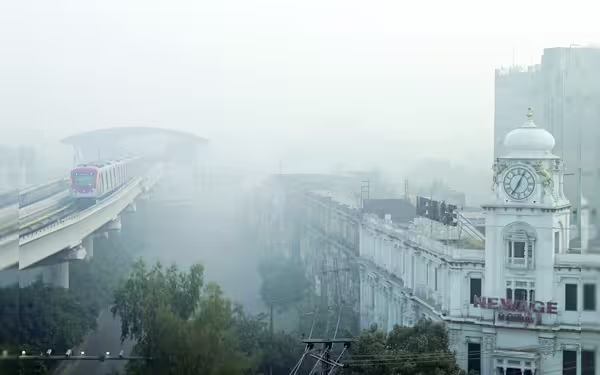Saturday, November 16, 2024 07:24 PM
Smog Crisis in Pakistan: Experts Warn Against Quick Fixes
- Smog affects millions in urban areas.
- Artificial rain may not provide relief.
- Sustainable solutions require time and commitment.
 Image Credits: tribune.com.pk
Image Credits: tribune.com.pkExperts warn that quick fixes for smog in Pakistan are ineffective; sustainable solutions are essential for long-term improvement.
As the winter months approach, the issue of smog in Pakistan continues to loom large, affecting the health and well-being of millions. Smog, a mixture of fog and smoke, is particularly prevalent in urban areas, where industrial emissions, vehicle exhaust, and other pollutants combine to create a thick haze. This environmental challenge has sparked discussions among experts about potential solutions, but many are skeptical about the effectiveness of quick fixes.
Recently, some experts have weighed in on the topic, suggesting that methods like artificial rain may not provide the relief that many hope for this season. "However, some experts believe that an artificial rain will be of little help in this season while installation of air purification towers will also not be economically viable," they stated. This perspective highlights the complexity of the smog issue, as it is not merely a matter of implementing a single solution.
Artificial rain, which involves sprinkling chemicals on clouds to induce precipitation, has been proposed as a way to clear the air. Yet, experts caution that this method may not yield significant results. "Moreover, in order to bring about artificial rains, we have to sprinkle a chemical on clouds," they explained. This raises questions about the environmental impact of such chemicals and whether the benefits would outweigh the potential risks.
In light of these challenges, it is clear that addressing smog requires a multifaceted approach. Solutions may include stricter regulations on emissions, promoting public transportation, and increasing green spaces in urban areas. While the idea of quick fixes is appealing, the reality is that sustainable change takes time and commitment from both the government and the public.
As citizens, it is essential to stay informed and advocate for policies that prioritize clean air and a healthier environment. The fight against smog is not just about immediate relief; it is about ensuring a better quality of life for future generations. By understanding the complexities of this issue, we can contribute to meaningful discussions and actions that lead to lasting improvements.













